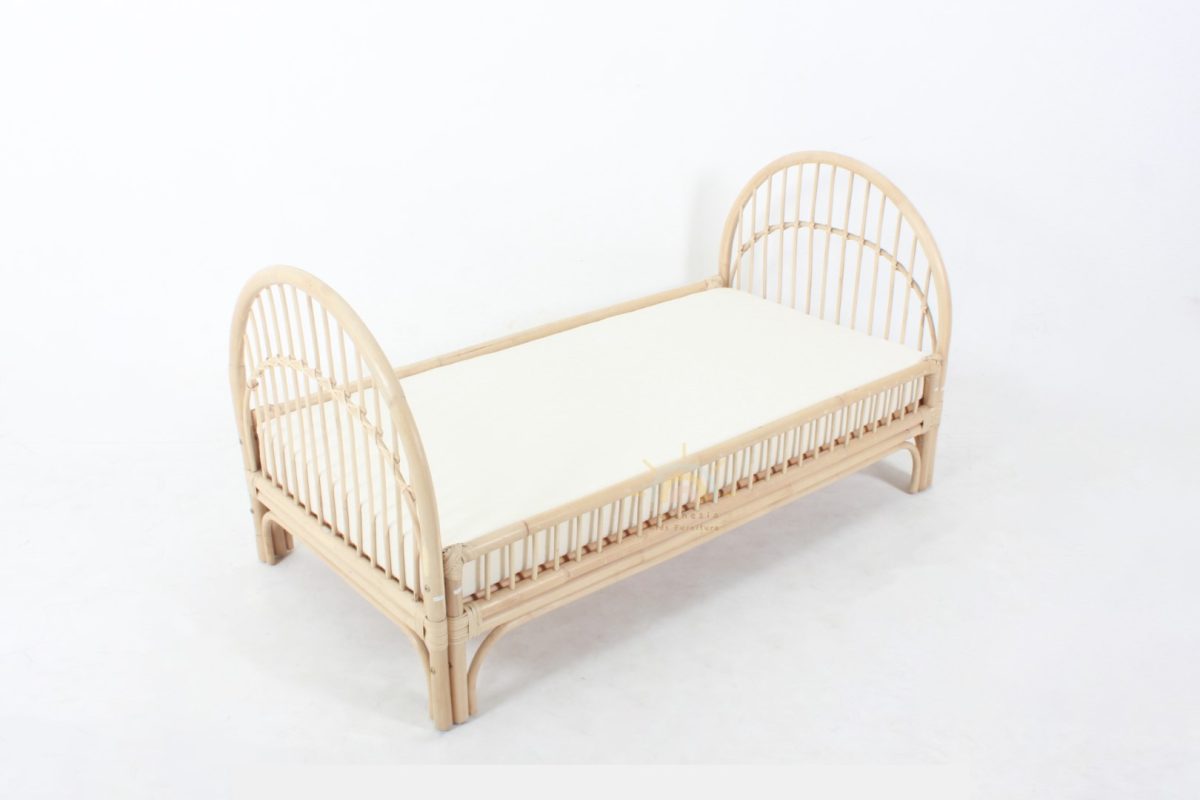Table of Contents
Indonesia, a country composed of over 17,000 islands, is not only known for its stunning landscapes and rich cultural diversity, but also for its extraordinary craftsmanship in furniture making. Among the most sought-after categories in the global furniture export market is Indonesian bedroom furniture, a symbol of comfort, artistry, and long-lasting value. This article explores in detail the allure, materials, design philosophy, production process, and international appeal of bedroom furniture crafted in Indonesia.
The Essence of Indonesian Craftsmanship
Indonesian furniture is deeply rooted in the country’s long-standing heritage of wood carving and artisan traditions. Generations of craftsmen in Java, Bali, and Sumatra have passed down their techniques through centuries, blending ancestral methods with contemporary aesthetics. This results in a seamless fusion of old-world charm and modern functionality that sets Indonesian bedroom furniture apart in the global market.
At the core of this craftsmanship lies a deep respect for natural materials. Furniture makers in Indonesia are highly selective about their raw resources. Whether it is sustainably harvested teak, richly grained mahogany, elegant mindi wood, or the increasingly popular suar and acacia, Indonesian artisans know how to bring out the beauty of each material. This connection between nature and artistry is what gives the furniture its soul.
Teak Wood: The Crown Jewel of Indonesian Furniture
One cannot speak of Indonesian bedroom furniture without emphasizing the role of teak wood, known locally as “jati.” Teak is revered for its durability, natural oils, and striking grain patterns. Its ability to resist moisture, decay, and termites makes it ideal not only for indoor use but also for outdoor settings. In bedroom collections, teak is commonly used in bed frames, nightstands, wardrobes, and dressers due to its strength and aesthetic appeal.
What makes Indonesian teak even more valuable is its sourcing. Many manufacturers are committed to sustainability and environmental responsibility, obtaining teak from government-regulated plantations managed by Perum Perhutani or private estates with FSC certification. These initiatives ensure that the beauty of teak furniture does not come at the expense of deforestation or ecological harm.
Design Styles Rooted in Culture and Global Appeal
The beauty of Indonesian bedroom furniture lies in its wide range of design options. From traditional carvings inspired by Javanese palaces to sleek, minimalist forms catering to Scandinavian or Japanese-inspired aesthetics, Indonesia has something for every taste.
Classic designs often incorporate intricate carvings, floral patterns, or religious motifs influenced by Hindu-Buddhist history. These pieces, usually finished in deep walnut or honey tones, are ideal for clients looking for regal or vintage styles. On the other hand, modern collections often feature clean lines, smooth surfaces, and lighter finishes that align well with contemporary interior trends. These minimalist pieces are especially popular in the European and American markets, where the preference leans toward simplicity with a touch of natural texture.
There is also a growing trend in fusion designs, where traditional Indonesian woodwork is combined with modern silhouettes. For example, a bed frame might retain the distinctive Javanese headboard carving but sit on a minimalist platform base. This combination caters to customers who appreciate the authenticity of handmade art but still want furniture that fits into modern living spaces.
Sustainability and Ethical Production
In recent years, the demand for ethical and sustainable furniture has grown significantly. Buyers in Europe, Australia, and North America are no longer satisfied with aesthetic appeal alone—they also want to know that their purchases do not exploit labor or harm the environment.
Indonesian bedroom furniture manufacturers have adapted to these expectations by implementing sustainable production practices. Many companies now hold certifications such as FSC (Forest Stewardship Council), SVLK (Timber Legality Assurance System), and BSCI (Business Social Compliance Initiative). These certifications provide assurance that the furniture is made from legal and sustainable sources, and that labor practices meet international standards.
Artisans are often trained under fair trade environments, working in clean, safe workshops rather than exploitative sweatshops. This ethical approach enhances not just the value of the product, but also its story—a story that resonates with today’s conscientious consumers.
The Role of Indonesian Furniture in Hospitality Projects
Beyond residential use, Indonesian bedroom furniture is widely used in the hospitality sector. Resorts, boutique hotels, and villas across the world—from Bali to the Caribbean—prefer Indonesian-made bedroom sets for their combination of durability and exotic aesthetics. A handcrafted teak bed, complemented by matching nightstands and a suar wood bench, creates a tranquil yet luxurious atmosphere that aligns perfectly with hospitality interior design trends.
Custom-made solutions are a hallmark of Indonesian furniture manufacturing. Hotel project managers can work directly with factories to develop bespoke collections that meet specific design, size, and branding requirements. Whether it’s a rustic suite for an eco-lodge or an opulent set for a five-star resort, Indonesian manufacturers are known for their flexibility and attention to detail.
From Java to the World: The Journey of Export
Indonesia has established itself as a dominant player in the global furniture export industry. Jepara, a city in Central Java, is considered the heart of the furniture production hub. With thousands of workshops and factories ranging from small-scale artisan studios to large industrial facilities, Jepara supplies a significant portion of the world’s handcrafted wooden furniture.
Exporting Indonesian bedroom furniture involves meticulous processes to ensure quality, consistency, and safety. Every piece is carefully sanded, finished, and inspected before being packed securely for container shipment. Depending on the buyer’s requirements, furniture can be shipped in knock-down form for cost efficiency or fully assembled for ready use.
Over the years, Indonesian manufacturers have developed strong logistics networks and partnerships with international freight forwarders, making it easier to ship globally to markets such as the United States, Canada, the United Kingdom, Germany, Australia, and beyond. This global reach has further strengthened Indonesia’s position as a top source for premium bedroom furniture.
Customization and Versatility for Global Tastes
One of the reasons Indonesian bedroom furniture remains relevant across decades is its adaptability. Clients around the world have different preferences—not just in terms of style, but also in size, finish, and materials. Indonesian manufacturers are known for their flexibility in customizing orders.
Buyers can request modifications to dimensions, changes in wood type, alterations in design patterns, or adjustments in finishes to suit regional trends. For example, darker tones might be preferred in Mediterranean interiors, while Nordic styles lean toward natural or whitewashed finishes. This level of customization adds value and enables furniture retailers and designers to offer exclusive collections in their markets.
Additionally, Indonesian bedroom furniture is not limited to adult collections. Manufacturers also offer children’s bedroom sets, which include kid-sized beds, study desks, dressers, and toy storage units made from safe, non-toxic finishes and smooth edges. These products comply with international safety standards, making them ideal for export to family-focused markets.
A Growing Trend: Eco-Friendly and Natural Bedroom Concepts
With growing awareness of health and environmental issues, more homeowners are seeking bedroom furniture that supports wellness and sustainability. Indonesian manufacturers have responded by developing collections made from natural, untreated wood, finished with water-based or organic oils, and constructed without synthetic glues.
Natural rattan, another popular material in Indonesia, is also making its way into bedroom furniture, particularly in headboards, side tables, and storage benches. Its lightweight, breathable properties make it ideal for tropical or boho-themed bedrooms. Combining rattan with solid wood has become a popular design choice among eco-conscious consumers and interior designers alike.
Moreover, many Indonesian factories have implemented zero-waste or low-emission production systems. Offcuts and sawdust are often repurposed into handicrafts or biomass fuel, minimizing environmental impact and adding to the story of responsible manufacturing.
Challenges in Sourcing and Exporting Indonesian Bedroom Furniture
While the opportunities are immense, sourcing bedroom furniture from Indonesia does come with its challenges. For one, navigating the vast landscape of suppliers can be overwhelming for new buyers. Not all manufacturers meet international quality standards, and communication barriers may arise when dealing with factories that lack English-speaking staff or export experience.
Another challenge lies in lead times. Since most furniture is made to order and handcrafted, production timelines can range from 4 to 12 weeks, depending on the order size and complexity. Logistics can also be affected by global supply chain disruptions, customs clearance delays, or port congestion.
To mitigate these issues, many international buyers choose to work with export agents or sourcing consultants based in Indonesia who can vet factories, negotiate prices, oversee production, and ensure timely delivery. Some also attend trade shows like IFEX (Indonesia International Furniture Expo) or visit factory showrooms directly to establish stronger relationships.
The Investment Value of Indonesian Bedroom Furniture
Investing in Indonesian bedroom furniture is more than a purchase—it’s a statement of taste, culture, and sustainability. These pieces are not mass-produced in automated lines, but rather brought to life through the hands of skilled artisans. Their durability means that they last for decades with minimal maintenance, offering great return on investment both for residential owners and commercial spaces.
Furthermore, for retailers and wholesalers, Indonesian bedroom furniture offers excellent profit margins. The combination of handcrafted quality, competitive pricing, and customizability makes it an attractive product line for furniture showrooms, eCommerce platforms, and boutique interior stores around the world.
Innovation Rooted in Tradition
The future of Indonesian bedroom furniture looks bright. As global interest in sustainable living and authentic craftsmanship grows, Indonesia is uniquely positioned to meet that demand. More manufacturers are integrating digital design tools, automated CNC carving, and precision joinery to complement traditional skills. This blend of heritage and technology ensures that Indonesian furniture remains competitive in both design and functionality.
In addition, the emergence of e-commerce and direct-to-consumer platforms is opening up new avenues for furniture brands in Indonesia to reach international markets. From handcrafted beds to eco-luxury nightstands, the world is increasingly discovering the beauty of Indonesian bedroom furniture—and the story behind each piece.

